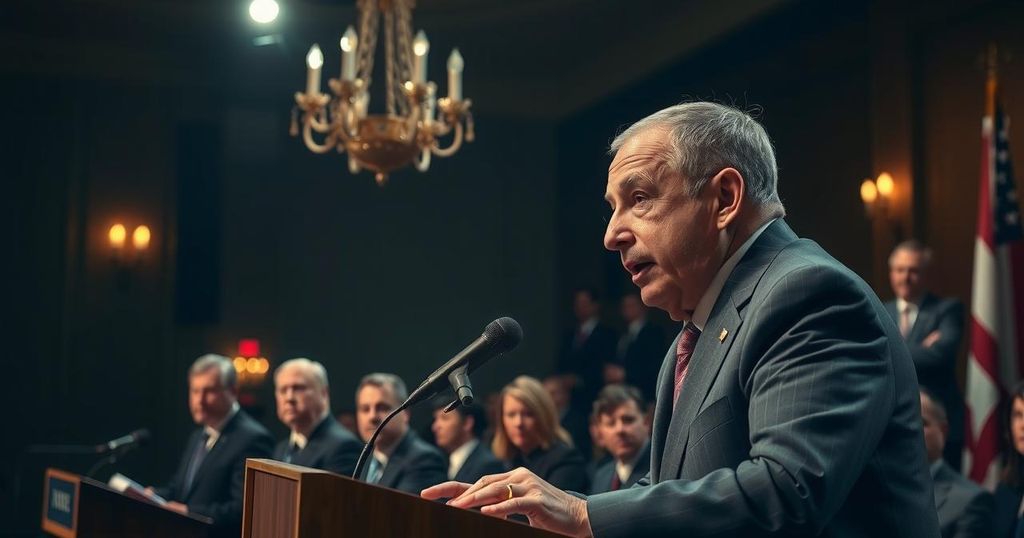Azerbaijan’s President Ilham Aliyev’s controversial speeches at COP29 have raised alarms regarding the country’s commitment to environmental goals. His critical attacks on Western nations and fossil fuel advocacy have overshadowed the climate agenda, attracting backlash from European diplomats and highlighting diplomatic tensions, particularly with France. Aliyev’s comments suggest a strategic intent to leverage the summit for political gains amidst ongoing human rights concerns in Azerbaijan.
At COP29, hosted by Azerbaijan, President Ilham Aliyev has attracted significant criticism for his contentious rhetoric and overt advocacy for fossil fuels, overshadowing the essential climate agenda. His combative approach, characterized by strong accusations against Western nations such as France and the Netherlands, has raised alarms regarding Azerbaijan’s capability to foster consensus essential for addressing global climate objectives.
During the summit, President Aliyev decried Western countries for their alleged hypocrisy, targeting France and the Netherlands for their presumed neocolonial practices. At the summit dedicated to Small Island Developing Countries, he specifically cited territories such as Aruba and Corsica, accusing these nations of suppressing local voices. These statements have invited pushback from European diplomats, including French Ecological Transition Minister Agnès Pannier-Runacher, who deemed such remarks “unacceptable.” In a demonstration of diplomatic discontent, she canceled her attendance at COP29, underlining the tensions prompted by Aliyev’s words.
A series of diplomatic escalations followed; for instance, the French Foreign Ministry responded to Aliyev’s charges against France by summoning Azerbaijan’s ambassador in France. This prompted a reciprocal action by Azerbaijan, further highlighting the strained relations resulting from Aliyev’s comments. EU officials, including Climate Commissioner Wopke Hoekstra and outgoing EU Foreign Affairs chief Josep Borrell, publicly condemned Aliyev’s rhetoric, labeling it inappropriate and damaging to the credibility of the Azerbaijan presidency at COP29.
Additionally, Aliyev’s remarks come amid accusations of the country employing COP29 as a platform for advancing its geopolitical agenda rather than committing sincerely to addressing climate change. Aliyev maintains a staunch defense of fossil fuels, proclaiming them a “gift from God,” thus reinforcing suspicions regarding Azerbaijan’s environmental intentions. Furthermore, allegations persist that Azerbaijan engages in greenwashing while it continues to face considerable scrutiny for human rights violations, particularly against journalists and activists.
In a notable incident during the summit, Deputy Foreign Minister Yalchin Rafiyev was confronted about the detentions of dissenting voices within Azerbaijan, a question he ultimately refused to answer, illustrating the country’s tense domestic climate and disregard for civil society concerns.
Azerbaijan’s hosting of COP29 has positioned President Ilham Aliyev at the forefront of global climate discussions. However, his administration’s advocacy for fossil fuels, alongside pronounced geopolitical rhetoric against Western nations, presents a paradox that raises concerns about Azerbaijan’s environmental commitment. The backdrop of strained relations with France after the Nagorno-Karabakh conflict further complicates the situation, as Aliyev utilizes anti-colonial discourse to bolster his stance in the international arena. Additionally, Azerbaijan’s human rights records, marked by the suppression of political dissent, have cast a long shadow over its engagement in the climate dialogue at COP29.
In summary, President Aliyev’s assertive rhetoric at COP29 has provoked backlash from European diplomats and raised pressing questions about Azerbaijan’s true intentions regarding climate action. Not only does this escalate diplomatic tensions, particularly with France, but it also complicates Azerbaijan’s position as a credible leader in the climate discourse. The blend of fossil fuel advocacy and geopolitical maneuvering suggests a strategic utilization of COP29 for national interests, rather than a genuine commitment to environmental sustainability.
Original Source: www.euractiv.com






